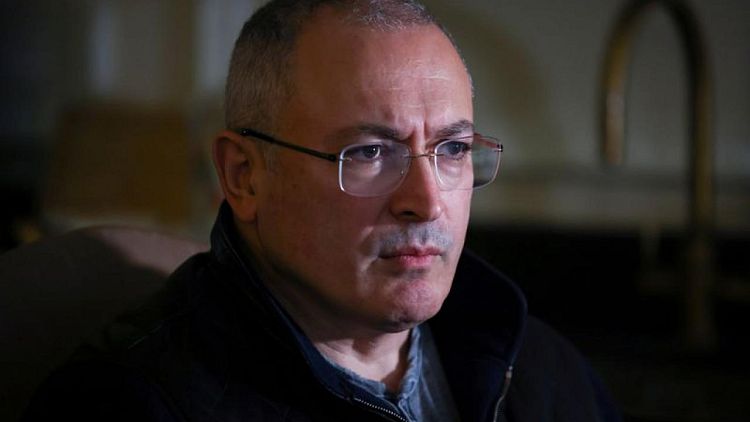MOSCOW -Open Russia, an opposition group linked to exiled former oil tycoon and Kremlin critic Mikhail Khodorkovsky, said on Thursday it had decided to end its operations in Russia to protect its members from the risk of being jailed.
Russian authorities have been cracking down on anti-Kremlin activism ahead of September parliamentary elections. Open Russia said it had taken the decision due to a draft law that threatens anyone cooperating with "undesirable" groups with jail terms.
"We are doing this to avoid criminal prosecution," Andrei Pivovarov, Open Russia's executive director, said in a statement. "We don't need any new criminal cases against our supporters."
Russia declared the London-based Open Russia group "undesirable" in 2017, effectively banning its activities. Its allies in Russia continued their activism under the same name, but as a separate legal entity to try to protect themselves from prosecution.
The group, which has accused the Kremlin of using legislation to clear the field of real political opponents, something the Kremlin denies, is one of more than 30 organisations that Moscow has labelled as undesirable and banned under a law adopted in 2015.
In response to Open Russia's accusation, Kremlin spokesman Dmitry Peskov said Russian politics were "rich and multifaceted."
"The departure (of a political group) does not amount to clearing the political field," Peskov told reporters on a conference call.
Earlier this month, the lower house of parliament voted to support legislation that would increase criminal liability for anyone who cooperates with such organisations, whether in Russia or abroad.
It proposes jailing group participants for up to four years. The bill still needs to pass two parliamentary readings, receive the upper house's approval and be signed by President Vladimir Putin before it becomes law.
Russia has already prosecuted activists over links to Open Russia. In February, a court handed an anti-Kremlin activist a suspended four-year jail sentence after convicting her of carrying out activities on behalf of Open Russia.
Rights groups say Russia's law against "undesirable" organisations can be used to target civil society members. Russia says the law is needed to protect its national security from external interference.
